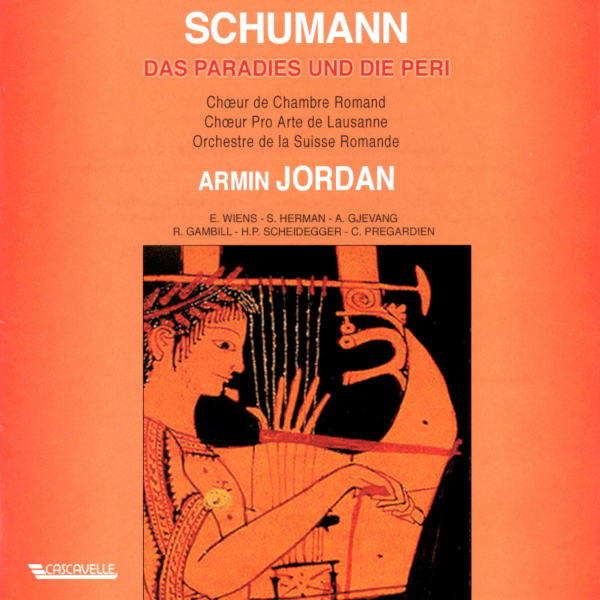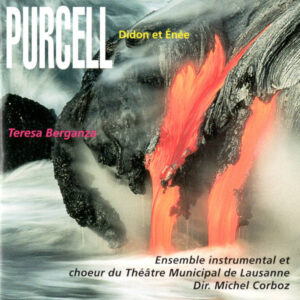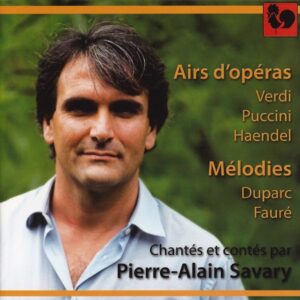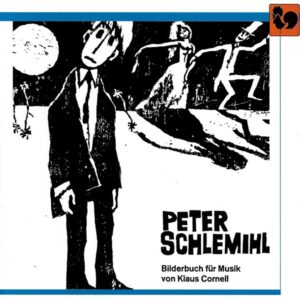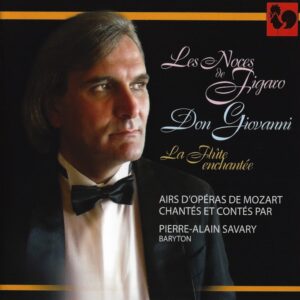Extraits / Excerpts
Schumann: Das Paradies und die Peri, Op. 50 - Edith Wiens - Chœur de Chambre Romand - Chœur Pro Arte de Lausanne - Orchestre de la Suisse Romande, Armin Jordan
Robert SCHUMANN: Das Paradies und die Peri, Op. 50
CD 1:
Robert SCHUMANN: Das Paradies und die Peri, Op. 50, Erster Teil: No. 1 Vor Edens Tor im Morgenprangen – No. 2 Wie glücklich sie wandeln – No. 3 Rezitativ – Der hehre Engel, der die Pforte – No. 4 Wo find ich sie? – No. 5 So sann sie nach – No. 6 Doch seine Ströme sind jetzt rot – No. 7 Und einsam steht ein Jüngling – No. 8 Weh, weh, er fehlte das Ziel – No. 9 Die Peri sah das Mal der Wunde – Zweiter Teil: No. 10 Die Peri tritt mit schüchterner Gebärde – No. 11 Ihr erstes Himmelshoffen schwand – No. 12 Fort streift von hier das Kind der Lüfte – No. 13 Die Peri weint – No. 14 Im Waldesgrün am stillen See – No. 15 Verlassener Jüngling – No. 16 O lass mich von der Luft durchdringen – No. 17 Schlaf nun und ruhe in Träumen voll Duft.
CD 2:
Robert SCHUMANN: Das Paradies und die Peri, Op. 50, Dritter Teil: No. 18 Schmücket die Stufen zu Allahs Thron – No. 19 Dem Sang von ferne lauschend – No. 20 Verstossen! Verschlossen aufs neu – No. 21 Jetzt sank des Abends goldner Schein – No. 22 Und wie sie niederwärts sich schwingt – No. 23 Hinab zu jenem Sonnentempel – No. 24 O heilge Tränen innger Reue – No. 25 Es fällt ein Tropfen – No. 26 Freud, ewge Freude, mein Werk ist getan.
Edith Wiens, soprano – Sylvia Herman, soprano – Ann Gjevang, alto – Robert Gambill, ténor – Christophe Prégardien, ténor – Hans-Peter Scheidegger, basse.
Chœur de Chambre Romand – Chœur Pro Arte de Lausanne, André Charlet – Orchestre de la Suisse Romande, Armin Jordan, direction.
https://edithwiens.com/
https://www.cpal.ch/
https://www.osr.ch
Das Paradies und die Peri
For Robert Schumann, 1841 commenced a three-year period of intensely creative activity. His marriage to Clara on September 21st, long delayed due to the intransigence of her father, marks the beginning of this productive, apparently happy era. He composed his first two symphonies, 1841, and some of his greatest chamber music, 1842, in this atmosphere of contentment. In 1843, however, Schumann yielded to the tremendous fatigue resulting from this burst of genius; Paradise and the Peri was the only noteworthy composition of that year.
The work is classified as an oratorio. It corresponds, in fact, to the widely accepted definition of oratorio as a composition for solo voice(s), choir and orchestra, destined for no more than concert performance. Schumann himself described his work as an oratorio, adding that it “was created for joyous people, not for the church.” This qualification seems unnecessary given that, in 1840, oratorio had long since been disassociated from its divine origins. Its secular identity had been established since the mid-18th century; with Haydn’s The Seasons, it had been gloriously and indisputably confirmed. Why then return to a question which was no longer relevant?[show_more more=”Show More” less=”Show Less”]
The novelty of Schumann’s approach to the music is strongly linked to his choice of Thomas Moore’s Lalla Rookh. Until then, the material for secular oratorios were myths not unlike the biblical sources for sacred oratorios, or abstract poetic texts with their allegorical characters. In spite of its distinctly realistic quality, The Seasons belongs to this second category. In either case, lyricism was still controlled and highly classical; there was very little room for personal sentiment. All that was to change with Thomas Moore’s text. Lalla Rookh is English romanticism of the most excessive variety. Moore was following, through his psychological themes, oriental decor and every possible detail, the same path which had made his friend Byron one of the brightest stars in Europe’s literary firmament.
The unprecedented plot of Paradise and the Peri must have stunned audiences in 1843. Peri, a famous ballerina and semi-goddess, was an entirely original character. In Moore’s story, she is forbidden access to Paradise until she can provide the keeper of the celestial gates with “the gift heaven prefers above all others.”
She came from a land which had nothing in common with the lavish images of the orient in vogue at that time; a poet’s dreamland, ardently created as an escape from the dreariness of everyday existence. The Peri offered three gifts to the angel, but neither the warrior’s blood nor the sighs of love were of interest to him. Only the third offering, a tear of remorse wrested from a criminal by the prayers of a child, was accepted. The story does not call for operatic treatment, nor does it lend itself to the separation into “numbers” which marks earlier oratorios. Paradise and the Peri is a moral fairytale, combining a steady narrative stream with a constant subjective undercurrent. Nothing in the story is self-evident, everything is experienced through the desires, fears and setbacks of the heroine. A poem of such striking originality demanded equally innovative music. Thus Schumann created the first romantic oratorio. The sum of his experience in lieder composition was applied in his treatment of a continuous melody in which the old recitative is replaced by sung narration relying heavily on the orchestra. A multitude of astonishing colors illuminate this fantastic story of the orient. Numerical divisions disappear, internal energy impels the narrative in which themes may be identified with specific heroes and events, and as such, are the harbingers of the Wagnerian leitmotiv technique.
Paradise and the Peri enjoyed only a brief success in its day and remains little-known and unappreciated. Schumann, however, was not mistaken when he referred to it as his “most important work in every sense of the word” and thanked heaven for “preserving his life and good health throughout its composition.”
Jean-François Labie, translated by Maria Mill
[/show_more]
